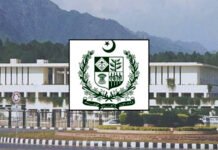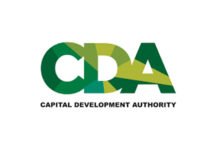In a striking display of bureaucratic discord, a power struggle has erupted between two key collectorates of Pakistan Customs, revealing deep-rooted issues of influence, misuse of authority, and apparent retaliation against whistleblowing officers. At the heart of this controversy is the suspension of Deputy Collector Customs Export, Jam Muhammad Imran, who found himself penalized not for misconduct, but for highlighting serious procedural violations and misuse of power within the customs apparatus.
The chain of events began with the inspection of a suspicious consignment destined for China. Declared as “leather products” by M/S Wow Trading, and cleared by M/S Fair Trade Impex, the container in question was intercepted for inspection on April 28. In a turn of events that underscored the stakes, the Anti-Narcotics Force (ANF) stepped in shortly after, uncovering 14 metric tons of donkey hides a product whose export has been explicitly banned since 2015 by the Economic Coordination Committee (ECC).
Although the ANF completed its examination and, acknowledging that the issue was outside its mandate, handed over the matter to Customs Export, complications rapidly unfolded. The Port Control Unit, operating under the Collectorate of Customs Enforcement, took unauthorized possession of the container two hours after the ANF’s intervention. This move was in direct contravention of the Customs General Order (CGO) 03/2018, which mandates joint inspections for any prohibited items.
Deputy Collector Jam Muhammad Imran did not remain silent. In a letter addressed to his superiors and the Federal Board of Revenue (FBR), he pointedly outlined that the Port Control Unit overstepped its legal mandate. He accused a fellow officer, Deputy Collector Rabil Khokhar, of habitual misconduct, asserting that similar actions had been taken before allegedly to solicit bribes referring to 40 Goods Declarations (GDs) as supporting evidence. Jam also warned that a closer examination of other GDs could unearth a wider scandal involving corruption and abuse of authority.
His claims extended to the jurisdiction of the Port Control Unit itself, stating that it was limited to dealing with narcotics, explosives, and cultural artifacts, and not agricultural or prohibited goods like donkey hides. Moreover, he expressed concern that unchecked overreach by such enforcement units could lead to chaos and compromise in trade regulation.
Despite the gravity of these revelations, the Collectorate of Customs Export remained inert, ignoring the initial letter submitted on May 8. When Jam escalated the matter directly to the FBR on May 21, he was swiftly removed from his position, and a departmental inquiry was launched against him. This rapid reaction, clearly punitive in nature, suggests a troubling trend: that those who challenge authority and demand accountability may face reprisals rather than support.
In contrast, the Collectorate of Enforcement defended its actions by invoking Section 2(s) of the Customs Act, 1969 a defense the export authorities dismissed as irrelevant in the context of tax-free exports and designated export zones. The resulting impasse between the two departments not only underscores a breakdown in protocol but also raises questions about the governance and oversight mechanisms within Pakistan’s customs system.
What emerges from this saga is a portrait of an institution mired in internal conflict, where influence often outweighs integrity, and the rule of law is selectively interpreted. If whistleblowers are to be punished rather than protected, and if internal checks are bypassed by those with connections, the credibility of the system as a whole is at stake. This episode is not just a bureaucratic skirmish it is a litmus test for institutional accountability and the future of lawful governance in Pakistan’s customs operations.



